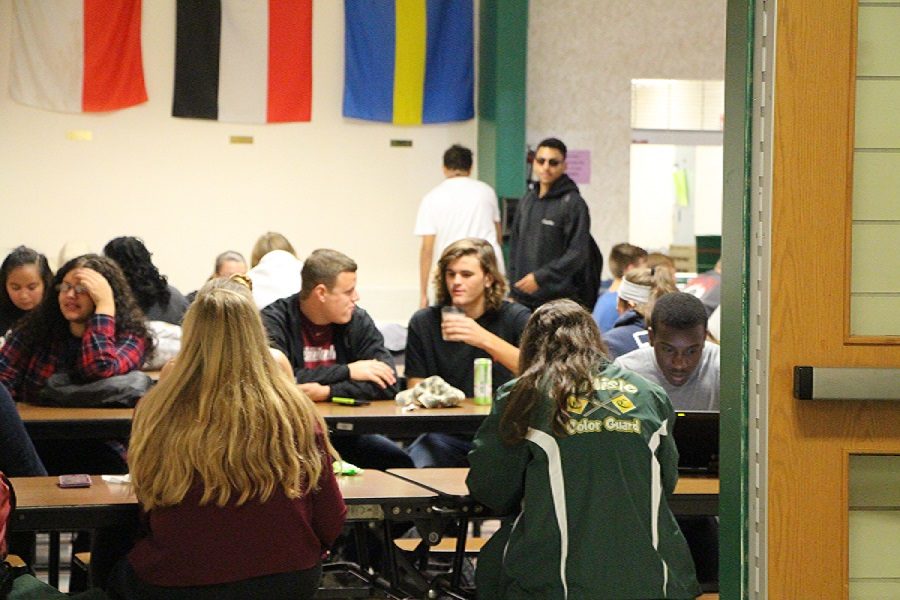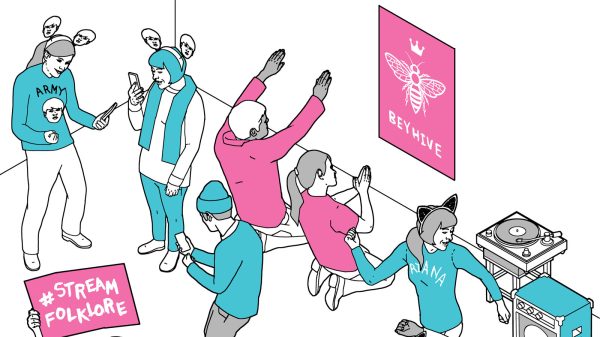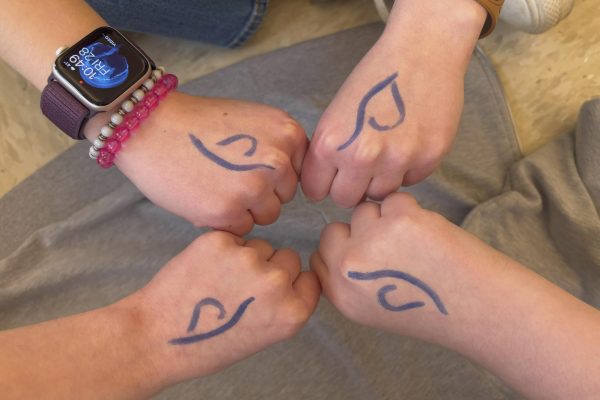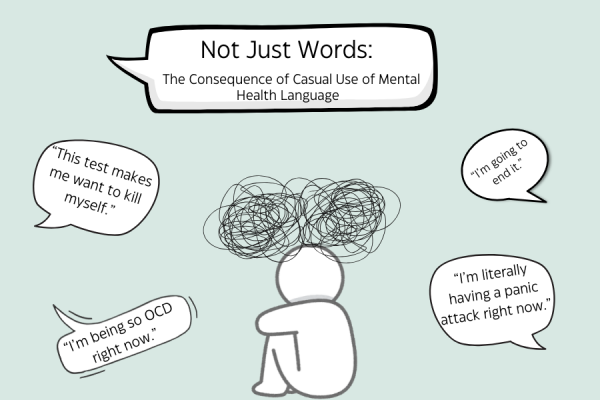Does popularity really matter? (Editorial)
Students eat lunch in the cafeteria. Movies often depict cafeterias as a breeding ground for popularity problems but, is it?
Within modern media, popularity is a common topic in schools, work places, and generally every large group of people. Movies like Mean Girls and Clueless depict a huge clique problem among the students of a high school. However, the ideas presented in these movies are extreme and leave people wondering: Does popularity really matter?
When considering the structural aspects of social groups in a high school, popularity can be seen as a Charles Darwin-esque hierarchy of disastrous proportions with different groups based on different interests, which are always clashing, and people constantly worry about inclusion and exclusion.
In the New York Times article “Peeking at the Negative Side of High School Popularity,” writer Alina Tugend observes that surveys estimate that “about 20 percent of students in high school are highly liked, about fifty percent are average.”
But how does that affect the way people co-exist in high school?
Social media plays a major role in these groups, often dividing those with a large influence and those without. Popularity can be seen through someones likes or followers. With distractions such as these, people can miss some of the most important parts of friendships and overall connections. So, what is the point of worrying about societal approval and/or popularity in general?
Studies at the University of Virginia show “those who care the most about their social standing grow up to have difficulties with their interpersonal relationships years later.” Focusing on reputation can interfere with someone’s ability to sustain connections.
According to modern media, teenagers are constantly worrying about their appearance and social status for approval from their peers. However, after high school, will it matter anyway? Valuable friendships will grow and unhealthy ones will dissipate; outside of social media, friendships are what really matters, popularity isn’t.
After all, as fiction writer Emily Lockhart says in book, Real Live Boyfriends, “If you have friends who actually like you, you’re popular enough.”
Disclaimer: Articles designated as “Editorial” represent the views and opinions of the author, not the 2017-2018 Periscope staff, CHS Administration, or the CHS student body.
Want to help the Herd? Please consider supporting the Periscope program. Your donation will support the student journalists of CHS and allow us to purchase equipment, send students to workshops/camps, and cover our annual website hosting costs.

Reese Daugherty is currently a freshman at Carlisle High School and this is her first time on Periscope staff. Reese enjoys playing the guitar and ukulele...

Kenzy is currently a freshman at Carlisle High School. This is her first year on Periscope and she is a photo editor and photographer. While not getting...

































































































